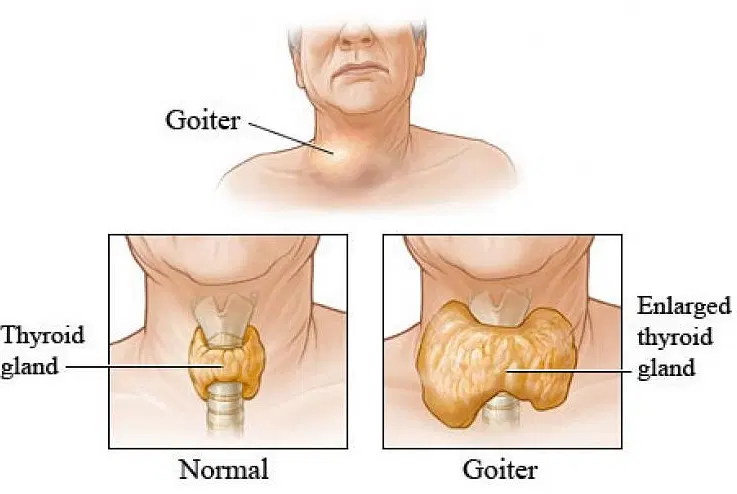Impact Of Multinodular Goitre On Quality Of Life: Patient Perspectives
Multinodular goitre (MNG) is more than just a thyroid disorder—it’s a condition that profoundly affects the lives of those diagnosed with it. From physical discomfort to emotional strain, MNG can significantly impact a patient’s quality of life (QoL). In this article, we explore the multifaceted impact of MNG on patients’ lives, drawing insights from their perspectives and experiences.
Understanding Multinodular Goitre
Multinodular goitre is characterized by the formation of multiple nodules within the thyroid gland. These nodules can vary in size and may lead to the enlargement of the thyroid, causing visible swelling in the neck. While MNG is often benign, it can cause symptoms such as difficulty swallowing, hoarseness, and in some cases, alterations in thyroid hormone levels. The exact cause of MNG is not always clear, but factors such as iodine deficiency, genetic predisposition, and hormonal imbalances are believed to play a role.
Physical Impact
For many patients, the physical symptoms of MNG are the most immediate and tangible aspect of the condition. The enlargement of the thyroid gland can lead to discomfort, pressure, and even pain in the neck region. Simple tasks like swallowing or turning the head may become challenging, affecting daily activities and overall mobility. Some patients may also experience symptoms related to thyroid hormone imbalances, such as fatigue, weight changes, and temperature sensitivity. These physical manifestations can significantly disrupt a patient’s daily life and contribute to a diminished sense of well-being.
Emotional Strain
Beyond the physical discomfort, MNG can take a toll on patients’ emotional well-being. The visible swelling of the neck can lead to self-consciousness and feelings of embarrassment, especially in social settings. Many patients report struggling with body image issues and low self-esteem as a result of their condition. Additionally, the uncertainty surrounding MNG, including concerns about potential malignancy or disease progression, can cause significant anxiety and distress. Coping with the emotional burden of MNG can be challenging, often requiring support from loved ones and healthcare professionals.
Impact on Daily Life
The impact of MNG extends beyond physical discomfort and emotional strain—it permeates into every aspect of a patient’s daily life. Simple tasks like eating, sleeping, and speaking may become more challenging due to neck discomfort and swelling. Patients may find themselves avoiding certain activities or social situations to minimize attention to their visible symptoms. Work and productivity may also be affected, as fatigue and other symptoms interfere with concentration and performance. The constant management of MNG and its associated symptoms can be exhausting, leaving patients feeling overwhelmed and drained.
Navigating Diagnosis and Treatment
The journey of an MNG patient often begins with the diagnosis, which may involve imaging studies such as ultrasound and fine-needle aspiration biopsy. Navigating the healthcare system and understanding treatment options can be daunting, especially for those unfamiliar with thyroid disorders. Treatment decisions, including whether to pursue surgical intervention or opt for conservative management, require careful consideration and discussion with healthcare providers. Patients may also face challenges related to access to healthcare services, financial constraints, and logistical issues, further complicating their journey.
Coping Strategies and Support Systems
Despite the challenges posed by MNG, many patients develop effective coping strategies and seek support from various sources. Education and awareness play a crucial role in empowering patients to understand their condition and advocate for their needs. Support groups, online forums, and social media platforms provide valuable avenues for connecting with others facing similar challenges, sharing experiences, and seeking advice. Additionally, the support of family members, friends, and healthcare providers can offer emotional reassurance and practical assistance throughout the treatment process.
Finding Hope and Resilience
Living with MNG can be a daunting journey, but many patients find hope and resilience along the way. By embracing self-care practices, seeking support from others, and staying informed about their condition, patients can empower themselves to navigate the challenges of MNG more effectively. While the road may be long and challenging, it’s important for patients to remember that they are not alone in their journey. With the right support and resources, individuals living with MNG can cultivate a sense of resilience and reclaim their quality of life.
Conclusion
Multinodular goitre presents a unique set of challenges for patients, impacting their physical health, emotional well-being, and daily functioning. By listening to patients’ perspectives and experiences, healthcare providers can gain valuable insights into the multifaceted nature of MNG and tailor interventions to address patients’ holistic needs effectively. Through a combination of medical treatment, psychosocial support, and self-care practices, individuals living with MNG can strive to improve their quality of life and find hope in their journey toward wellness.








